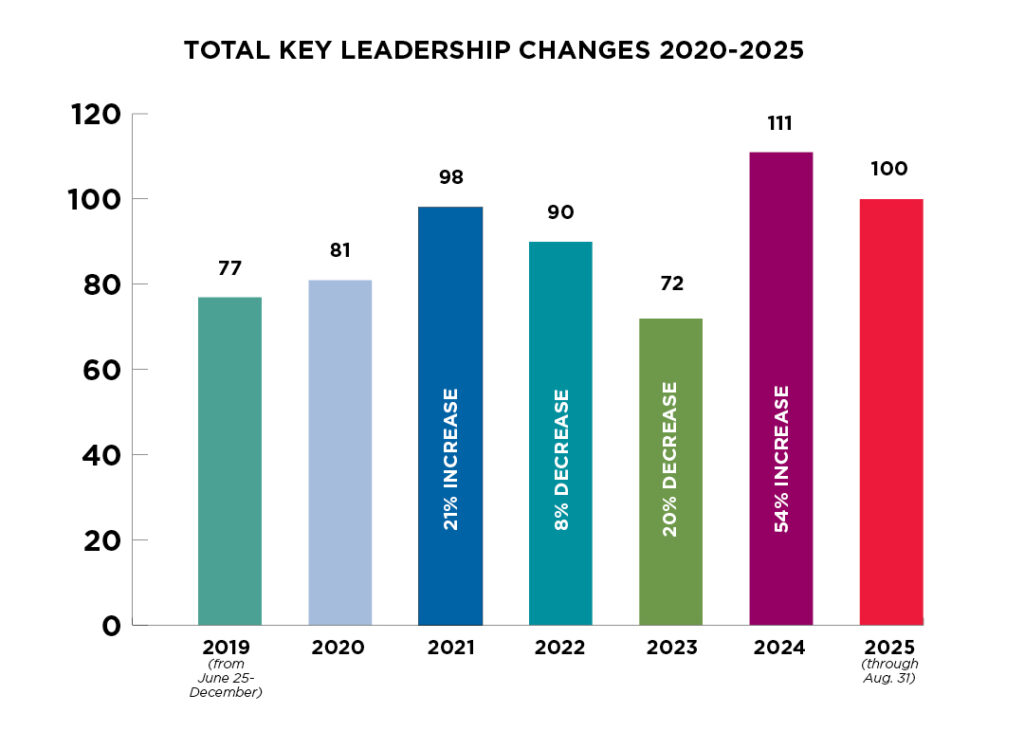On Leadership: How do you use your influence?

SUZANNA de BACA Jan 18, 2022 | 9:04 pm
5 min read time
1,152 wordsBusiness Record Insider, On Leadership, Opinion
Think back on your career. Did you ever work for a leader who wielded power but failed to gain your loyalty or engagement? By contrast, can you recall a leader who used their position to influence in a positive way? I’ve worked for both types of people, and there is no question that the latter approach is the one I have admired and tried to emulate.
As a leader, you have the opportunity to use your position of authority to influence your organization, teams, individuals and your larger community. You also have the choice of how you use that authority. Some leaders opt to harness the power of their position to force others to do something or to serve their own agenda, while others facilitate change or progress in a more inclusive manner or to benefit others.
A recent Forbes article titled “Defining Power in 2021: Has Influence Become Bigger Than Wealth?” suggests that the definition of power has actually changed in recent times, and leaders need to rethink how they use their authority. That article and the concept of influence were on my mind recently when the Business Record unveiled our annual Book of Lists, in which we invited our readers to vote on who they think are the most influential business leaders and the most influential nonprofit boards in our area. Given these individuals’ status among their peers, the opportunity for some input presented itself.
I asked some of those named to the Top 25 business leaders in Business Record’s Book of Lists the following question: “What does being an ‘influencer’ mean to you?”
Jay Byers, president and CEO, Greater Des Moines Partnership: I am a big believer in the power of positive, proactive leadership that can take a bold, visionary idea, build a diverse coalition of private, public and nonprofit partners, and collectively make big things happen together.
Renee Hardman, CEO, Big Brothers Big Sisters of Central Iowa: Being an influencer is about inspiring others through a clear vision and leading with both your head and heart. As the saying goes, people truly do not care how much you know until they know how much you care. The art of influencing others, regardless of what position you have or what financial resources you have, is about ensuring the folks you work with trust and respect the person you are and being abundantly grateful for the contributions of others.
Daniel J. Houston, chairman, president and CEO, Principal Financial Group: A person with influence has a responsibility to represent themselves and their company and/or community with the highest integrity. They must be respectful of others and be a good listener – first seeking to understand and then to be understood. They should be engaged, constructive, and leave their ego at the door.
Izaah JB Knox, executive director, Urban Dreams: First of all, I do not consider myself an influencer; however, I can answer the question in general terms. Being an influencer means that a person is willing to discuss their platform when necessary, but not always. It also means that you live and act in a beneficial way to others. Additionally, it is being in the present, respectful – but not fixated – on the past while planning for a prosperous future.
Suku Radia, retired CEO, Bankers Trust: To influence is to inspire others in their actions. The fundamental requirement for any good influencer is the possession of integrity and great communication skills. The expectation of experience is a given; having good listening skills is another prerequisite as well as having humility. I believe that with all those attributes one can be an effective influencer.
Mary Sellers, president, United Way of Central Iowa: Influencers lead by example, by showing through their actions and their words what they hope to see in others. I believe an influencer has a duty to help those around them find their true potential. Tom Peters said, “Leaders don’t create more followers, they create more leaders.” I would add: “An influencer creates leaders, who then influence others.”
The Forbes article concludes by saying: “The time to change the impact you have on the world is today.” As you consider your leadership style and the year ahead, think about how you can use your influence to make a positive impact on the world and others.
Best practices on using your influence for good
Listen. Altruistic influencing means understanding and truly meeting needs. Radia suggests a best practice for any leader is to become a better listener, saying this is a skill nearly all leaders need to develop. “It’s not as easy as it sounds,” says Radia. “One would be surprised how much more effective one becomes as a leader if we just took the time to listen.”
Use your voice. Byers encourages leaders to use their authentic voice, especially on social media, to highlight innovative ideas, showcase community success stories and inspire greatness in others, saying, “Keep it positive, ignore negative comments, and keep moving forward.”
Create a welcoming and enjoyable culture. Houston says it is critical for leaders to create an environment where people feel comfortable speaking up and weighing in. He advises: “Welcome feedback and opinions from others, especially from people with different perspectives than your own.” Houston also stresses that appropriately used humor can lighten a moment, relieve tension and make work more fun.
Remember the 3 C’s. Hardman points out that an effective leader is one who is competent, compassionate and civic-minded – the 3 C’s. “You must know your trade, be empathetic towards others, and engage in causes and noble missions greater than yourself,” says Hardman, who points out that leading others includes “valuing strengths of your followers, fiercely defending the potential of others, and allowing the voices of those around you to be heard and understood – regardless of differences.” Knox echoes this sentiment, saying, “At Urban Dreams, we treat everyone with dignity and respect regardless of their lot in life.”
Serve others. Sellers asserts that true influence stems from service to others as a leader. “By always looking for ways to serve others, especially those we lead, we help those around us understand and accept the goals and challenges we face together,” says Sellers, adding that when leaders show they are willing to dig in and do whatever it takes to help win, they motivate everyone to pull together as a team.
Be the convener. Houston encourages leaders to use their influence to create coalitions to effect positive change in the world around them, offering up a quote he once heard that inspires him: “A community is a composition of well-intended souls living together to improve the quality of life itself for all.” As leaders, you have a unique platform from which to bring people together to get things done; use your influence to better the world around you.










